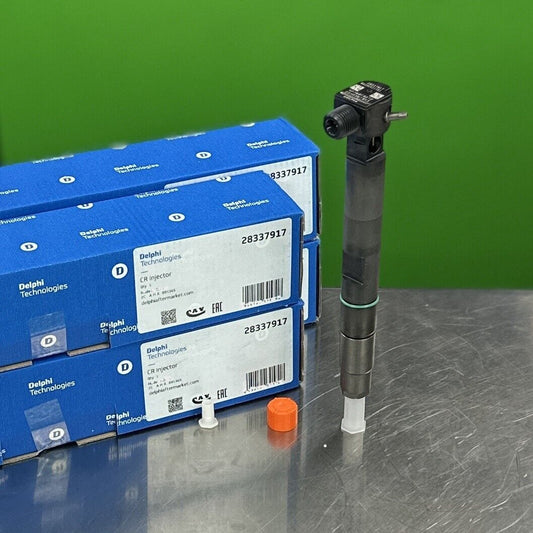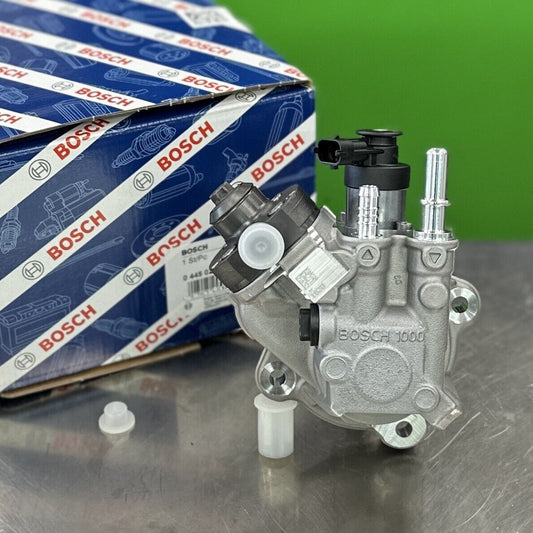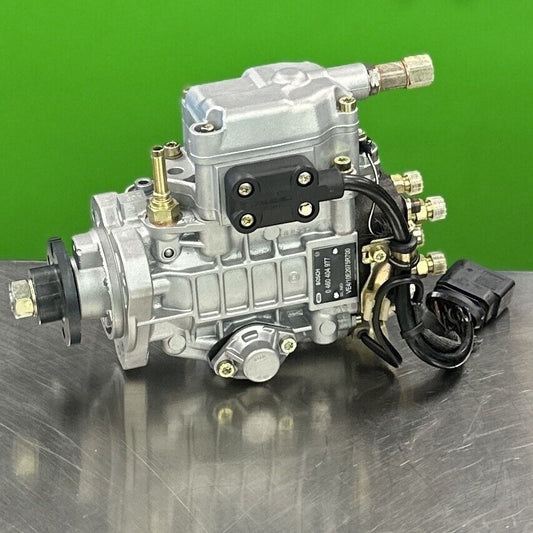Diesel Trucks vs Electric Trucks: Which Is Better for Heavy Loads in Nebraska?
When it comes to transporting heavy loads in Nebraska, the debate between diesel trucks and electric trucks rages on. Both options have their strengths and weaknesses, but which one reigns supreme when it comes to hauling massive cargo across the Cornhusker State?
Diesel trucks, known for their raw power and torque, have long been the go-to choice for heavy-duty transportation. These behemoths can handle substantial loads with ease, making them a popular choice among truckers navigating Nebraska's vast highways and byways. On the other hand, electric trucks are gaining traction for their eco-friendly credentials and quiet operation, offering a cleaner alternative for transporting goods.
But which is truly better for heavy loads in Nebraska? The answer lies in a careful examination of various factors, including performance, efficiency, environmental impact, cost, and infrastructure requirements. Diesel trucks have a proven track record of delivering robust performance and reliability, especially when it comes to long-distance hauling. Their powerful engines provide the necessary torque to tackle steep inclines and rough terrain, ensuring that the cargo reaches its destination safely and on time.
On the flip side, electric trucks are making waves in the industry with their impressive acceleration and zero emissions. While they may have limitations in terms of range compared to diesel trucks, advancements in battery technology are steadily closing the gap. In a state like Nebraska, where the vast expanse of land necessitates long journeys, the range of electric trucks becomes a crucial factor to consider.
Moreover, the environmental impact of heavy load transportation cannot be ignored. Diesel trucks are notorious for their emissions, contributing to air pollution and greenhouse gas emissions. In contrast, electric trucks offer a cleaner alternative, reducing carbon footprint and promoting sustainability. With increasing concerns about climate change and environmental degradation, the shift towards electric trucks seems inevitable.
Cost also plays a significant role in determining the better option for heavy loads in Nebraska. While diesel trucks may have a lower initial purchase price, the long-term operational costs, including fuel and maintenance, can add up significantly. Electric trucks, although pricier upfront, offer savings in fuel expenses and require less maintenance, making them a cost-effective choice in the long run.
Infrastructure requirements further complicate the decision-making process. Diesel trucks rely on a well-established network of fuel stations and maintenance facilities, which are abundant in Nebraska. In contrast, electric trucks require a robust charging infrastructure, including charging stations along major transport routes. The availability and accessibility of such infrastructure can influence the practicality of using electric trucks for heavy load transportation.
In conclusion, the choice between diesel trucks and electric trucks for heavy loads in Nebraska boils down to a careful consideration of performance, environmental impact, cost, and infrastructure. While diesel trucks offer unmatched power and reliability, electric trucks present a cleaner and more sustainable alternative. The decision ultimately rests on balancing these factors to determine which option best suits the unique needs of transporting heavy loads in the Cornhusker State.
Performance and Efficiency
When it comes to heavy load transportation in Nebraska, the performance and efficiency of diesel trucks and electric trucks play a crucial role in determining which option is better suited for the task. Diesel trucks have long been known for their robust torque capabilities, making them ideal for hauling heavy loads over vast distances. The raw power and acceleration of diesel engines provide a reliable means of transporting goods efficiently.
On the other hand, electric trucks are gaining traction in the transportation industry due to their advancements in technology. While traditionally perceived as less powerful than diesel trucks, electric trucks are now offering competitive torque and acceleration, especially in urban settings. Their quiet operation and instant torque delivery make them efficient for heavy load transport.
When comparing the range of diesel trucks versus electric trucks, diesel vehicles have the upper hand in long-haul journeys where refueling stations are abundant. However, electric trucks are rapidly improving their range capabilities with advancements in battery technology, making them a viable option for transporting heavy loads within Nebraska and neighboring states.
Considering the performance and efficiency aspect, both diesel trucks and electric trucks have their strengths and weaknesses, making it essential for businesses to evaluate their specific transportation needs before deciding which option aligns best with their operational requirements.
Environmental Impact
When it comes to the environmental impact of heavy load transportation in Nebraska, the choice between diesel trucks and electric trucks plays a significant role. Diesel trucks are notorious for their emissions, releasing pollutants like nitrogen oxides and particulate matter into the air, contributing to air pollution and respiratory issues. On the other hand, electric trucks offer a cleaner alternative, producing zero tailpipe emissions during operation, which can significantly reduce the carbon footprint associated with transporting heavy loads.
Considering the sustainability aspect, electric trucks have the upper hand in reducing greenhouse gas emissions and promoting a greener transportation system. By harnessing the power of electricity, these trucks help in mitigating climate change and preserving the environment for future generations. In contrast, diesel trucks, with their reliance on fossil fuels, continue to pose a threat to air quality and environmental health, especially in densely populated areas.
Moreover, the noise pollution generated by diesel trucks adds another layer of environmental concern, affecting both urban and rural areas along transportation routes. The constant rumble of diesel engines can disrupt wildlife habitats, disturb communities, and have detrimental effects on overall well-being. Electric trucks, known for their quieter operation, offer a solution to this issue, minimizing noise pollution and creating a more peaceful environment along transportation corridors.
Cost Analysis
When it comes to heavy load transportation in Nebraska, conducting a thorough cost analysis between diesel trucks and electric trucks is crucial. The initial purchase price of diesel trucks is typically lower than that of electric trucks, making them more accessible for businesses with budget constraints. However, the ongoing fuel costs of diesel trucks can add up significantly over time, especially considering the fluctuating prices of diesel fuel. On the other hand, electric trucks offer lower fuel costs due to the efficiency of electricity as a power source. Although the upfront investment in electric trucks may be higher, the long-term operational expenses tend to be lower, resulting in potential cost savings in the future.
Moreover, maintenance expenses play a significant role in the cost analysis between diesel and electric trucks. Diesel trucks require regular maintenance of their complex internal combustion engines, which can be costly and time-consuming. In contrast, electric trucks have fewer moving parts, leading to reduced maintenance needs and lower maintenance costs overall. This difference in maintenance requirements can impact the total cost of ownership over the lifespan of the vehicle.
Additionally, when evaluating the cost analysis between diesel and electric trucks, it is essential to consider the availability of incentives and subsidies that promote the adoption of electric vehicles. In Nebraska, various state and federal incentives may offset the higher initial cost of electric trucks, making them a more financially attractive option in the long run. These incentives can include tax credits, rebates, or grants that reduce the overall cost of purchasing and operating electric trucks, further tipping the scale in favor of electric vehicles from a cost perspective.
Furthermore, the total cost of ownership for heavy load transportation must take into account factors beyond the vehicle itself. Infrastructure requirements, such as charging stations for electric trucks and maintenance facilities for diesel trucks, can impact the overall cost analysis. Ensuring that the necessary infrastructure is in place to support the chosen truck type is essential for optimizing operational efficiency and minimizing unforeseen costs related to inadequate infrastructure.
In conclusion, while diesel trucks may have a lower initial purchase price, the overall cost analysis for heavy load transportation in Nebraska leans towards electric trucks due to their lower fuel costs, reduced maintenance expenses, and potential incentives available. By carefully evaluating all cost factors and considering the long-term financial implications, businesses can make informed decisions on whether diesel or electric trucks are the better choice for their specific needs and budget constraints.
Infrastructure Requirements
When it comes to heavy load transportation in Nebraska, the infrastructure requirements play a crucial role in determining the feasibility of using diesel trucks versus electric trucks. One of the key considerations is the availability of charging stations for electric trucks. Without a robust network of charging stations along major transportation routes, the practicality of electric trucks for long-haul journeys may be limited.
In addition to charging stations, the maintenance facilities for electric trucks also need to be taken into account. These facilities must be equipped with the necessary tools and expertise to handle the unique maintenance requirements of electric vehicles, ensuring minimal downtime and efficient operations.
Furthermore, road conditions suitable for heavy loads are essential for both diesel and electric trucks. Nebraska's infrastructure must be able to support the weight and size of heavy load vehicles, ensuring safe and smooth transportation of goods across the state.
Considering the infrastructure requirements for supporting diesel trucks, factors such as access to fuel stations and repair shops are critical. Diesel trucks rely on a network of fuel stations to refuel along their routes, making it essential to have a sufficient number of stations strategically located throughout Nebraska.
Moreover, the availability of maintenance facilities that specialize in diesel engine repairs is essential for ensuring the longevity and performance of diesel trucks. These facilities must have the expertise to address the specific needs of diesel engines and provide timely maintenance services to minimize downtime.
Regulatory Considerations
When it comes to heavy load transportation in Nebraska, regulatory considerations play a crucial role in determining the viability of using diesel trucks versus electric trucks. The state's regulations regarding emissions standards, incentives for eco-friendly vehicles, and potential future regulations heavily influence the decision-making process for fleet operators and trucking companies. Understanding and complying with these regulations is essential to avoid penalties and ensure smooth operations.
Nebraska, like many other states, has been actively promoting environmentally friendly transportation solutions to reduce carbon emissions and improve air quality. This push towards sustainability has led to the introduction of incentives and rebates for electric vehicles, including electric trucks, incentivizing companies to adopt cleaner technologies. By complying with these regulations and taking advantage of available incentives, businesses can not only contribute to a greener environment but also benefit from cost savings in the long run.
Moreover, staying informed about the evolving regulatory landscape is crucial for fleet managers and trucking companies operating in Nebraska. As emission standards become stricter and environmental concerns take center stage, the transition towards electric trucks may become a more attractive option. Adapting to these regulatory changes proactively can position companies ahead of the curve, ensuring compliance and demonstrating a commitment to sustainability that resonates with customers and stakeholders.
Considering the potential impact of future regulations on heavy load transportation, investing in electric trucks may offer a strategic advantage for businesses looking to stay competitive in the evolving market. By aligning with regulatory trends and embracing sustainable practices, companies can not only meet compliance requirements but also differentiate themselves as industry leaders driving positive change. The regulatory landscape in Nebraska is shifting towards a greener future, and being prepared to navigate these changes can set businesses on a path towards long-term success.
Frequently Asked Questions
-
Are electric trucks suitable for transporting heavy loads in Nebraska?
Electric trucks are increasingly becoming a viable option for heavy load transportation in Nebraska. With advancements in technology, electric trucks are now capable of handling heavy loads efficiently, offering benefits such as lower emissions and reduced operating costs in the long run.
-
Do diesel trucks have better performance than electric trucks for heavy loads?
Diesel trucks have traditionally been known for their robust performance when it comes to heavy loads. However, modern electric trucks are closing the performance gap, offering comparable torque and acceleration capabilities. The choice between diesel and electric trucks often depends on specific needs and priorities.
-
What are the key environmental benefits of using electric trucks in Nebraska?
Electric trucks contribute to a significant reduction in emissions compared to diesel counterparts, thus helping to improve air quality and reduce the carbon footprint. By transitioning to electric trucks, companies can play a crucial role in promoting sustainability and environmental conservation.
-
How do the operational costs of diesel trucks compare to electric trucks?
While diesel trucks may have lower initial purchase prices, electric trucks offer potential savings in fuel and maintenance costs over their lifetime. Factors such as electricity rates and government incentives can also influence the overall cost-effectiveness of electric trucks for heavy load transportation.
-
What infrastructure support is needed for widespread adoption of electric trucks in Nebraska?
Infrastructure development, including charging stations and maintenance facilities, is essential for the successful integration of electric trucks into the transportation network of Nebraska. Ensuring adequate infrastructure support is crucial for maximizing the efficiency and reliability of electric truck operations.



